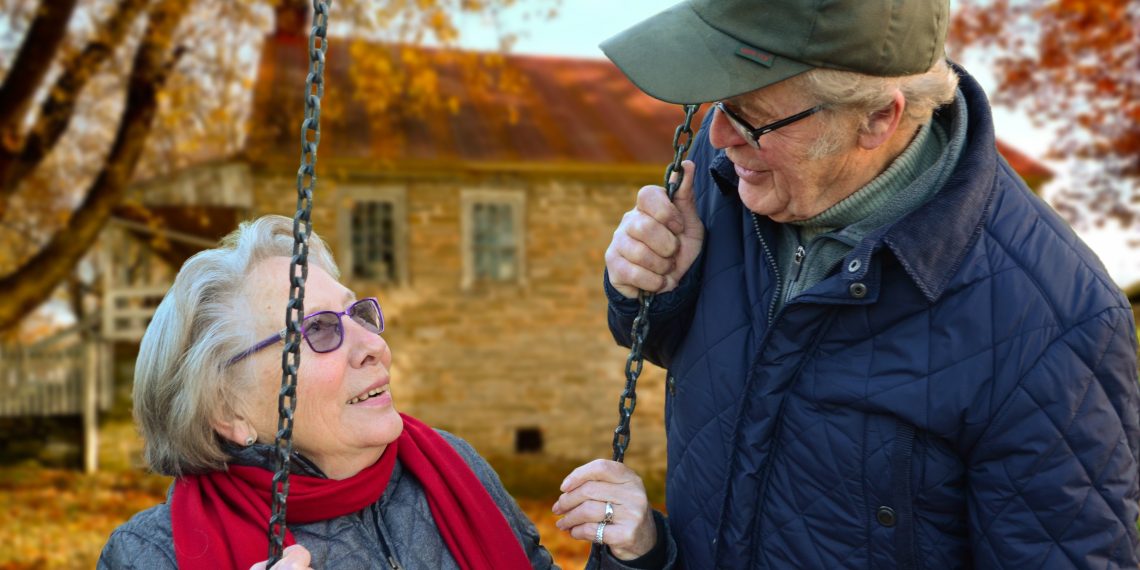For those who’ve been part of the military, life brings its own set of unique challenges and experiences. Often, these experiences can have lasting impacts, both physically and mentally. It’s only right that when these brave individuals come home, they receive the utmost respect and attention they’ve earned.
As someone caring for a veteran, you need a balance of empathy, patience, and specific know-how. This article discusses some important guidelines to help you provide proper care to your veteran relative, ensuring their well-being and honoring their service.
Recognize Signs of PTSD
Post-traumatic stress disorder often affects veterans due to their exposure to intense and sometimes traumatic events during service. Early identification of its symptoms can pave the way for prompt intervention.
Common symptoms include abrupt mood swings, intensified reactions to triggers, trouble sleeping, and aversion to places or circumstances that bring back traumatic memories. Additionally, they might have nightmares or flashbacks where they relive the events.
It’s pivotal, not just for the affected veterans, but for their kin to be conscious of these markers. Should you spot these in someone close, approach with empathy and suggest seeking expert guidance.
Regular Checkups
Regular health checks can unearth emerging health concerns, allowing for swift care. These usually involve blood tests, routine physicals, and other essential diagnostics. Given where veterans have been and what they’ve undergone, such checks are vital for them.
Many have endured unique difficulties and encountered varied risks. Consider those stationed at Camp Lejeune; they were exposed to contaminated water, increasing their risk for diseases, notably cancer. It’s pivotal to monitor their present health and be on the lookout for problems linked to past service.
If someone you know is impacted by the Camp Lejeune water contamination cancer issue, securing the rightful compensation for their trials is imperative. It’s of utmost importance to focus on their health, stay updated, and advocate for the care and justice they’re owed.
Prioritize Physical Activity
Encouraging physical activity can have great effects on a veteran’s well-being. The benefits are not only physical; exercise can also help mental health. It releases endorphins, which act as natural painkillers and mood lifters.
Whether it’s walking, swimming, or joining a local sports team, find activities that suit their preferences and physical abilities. Even gentle exercises or stretches can make a difference for those with mobility issues.
Regular activity can help in managing stress, anxiety, and even symptoms of PTSD. As caregivers or family members, joining them can be a bonding experience.
Stay Patient and Resilient
Caring for a veteran family member demands both understanding and resilience. Veterans, due to their unique experiences, often have varied emotional responses and requirements. There may be times of frustration or confusion.
Navigating these moments with patience is crucial, offering space when it’s beneficial and stepping in when they seek support. On the flip side, resilience involves confronting tough situations and being dedicated to one’s health despite any challenges.
This unwavering spirit not only benefits them but also strengthens you in your caregiving role. The caregiving journey might present hurdles, but with patience and perseverance, positive strides are attainable.
Engage in Active Listening
Active listening goes beyond hearing words; it’s truly grasping and reflecting on what’s being shared. For veterans, expressing their tales can be both healing and overwhelming. When they choose to confide, your attentive ear can be invaluable.
This involves maintaining eye contact, letting them finish their thoughts, and offering feedback that radiates genuine concern. Avoid rushing to conclusions or downplaying their emotions.
Instead, pose open-ended questions to encourage further dialogue. Such interactions make them feel valued and understood. Bear in mind that it isn’t always about troubleshooting or dispensing wisdom.
At times, merely listening, showing compassion, and offering your presence can be immensely comforting for someone acquainted with the distinct hurdles of military life.
Adapt the Living Space
Creating a comfortable and functional living space is important for veterans, especially those who may have physical limitations or specific needs after service. Having wide doorways or installing handrails are useful modifications that can make a big difference.
Furniture that’s designed for ease can offer added relaxation, and good lighting is necessary for those with sight issues. Creating quiet zones in the house can benefit those who crave peace or are noise-sensitive.
It’s not merely about physical comfort but also about recognizing their sacrifices and tailoring their home to their distinct needs. For relatives, acknowledging and accommodating these requirements is a gesture of respect, empathy, and appreciation.
Encourage Social Interaction
Building social ties is vital for overall mental well-being, and for veterans, it’s even more significant. The shift from military to civilian life can feel isolating at times. Assisting veterans to engage socially can instill a sense of community and inclusiveness.
They could consider becoming part of local veteran associations, getting involved in neighborhood events, or just hanging out with loved ones. These activities help form relationships and allow them to share stories or gain diverse perspectives.
Engaging in such ways can combat feelings of solitude, uplifting their mental state. For those around them, like family or caregivers, suggesting these gatherings or nudging them to attend local events can go a long way.
Enroll in Therapy or Counseling
Getting therapy or counseling can be helpful for veterans and their families. It’s about dealing with trauma or stress and managing the everyday challenges that come after service. Professional therapists give coping tools, strategies, and a safe space to discuss feelings and experiences.
For veterans, therapy can help process their service experiences, addressing any feelings of guilt, anger, or isolation. For family members, counseling gives insights into understanding and helping their veteran loved one better.
It’s important to remember that getting help is not a sign of weakness. On the contrary, it’s an active approach to well-being.
Maintain a Routine
Many people, especially veterans moving from the organized environment of the military to civilian life, find comfort in having a regular routine. A consistent routine gives a feeling of familiarity and control, reducing uncertainty.
Start by having regular meal times, sleep schedules, and daily activities. It’s also important to find time for relaxation and personal interests. For veterans, these habitual practices can bridge their past military roles and their current civilian identities, mitigating potential feelings of being out of place.
For family members and caregivers, helping them set up this daily routine can yield positive outcomes. Also, having a plan for the day helps them use their time well so that they can do chores and feel less stressed.
Conclusion
Helping a veteran relative requires empathy, tolerance, and determination. The transition from military service to regular life can be complex, given their distinct past experiences. Regular health checkups, staying informed, and building support are essential.
Guiding them towards therapy and encouraging social interactions can positively affect their mental well-being. Listen intently and be aware of PTSD symptoms to forge stronger bonds.
By embracing these measures, we guarantee our veterans receive the recognition, affection, and assistance they’ve earned.







